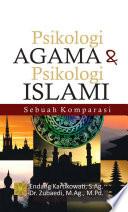
Praktek Shalat Praktis Versi Madzhab Syafiiy Dari Takbir Hingga Salam
Buku ini Penulis khususkan untuk pembahasan tentang kajian fiqih yang terkait dengan ibadah shalat. Penulis juga sengaja memberi judul buku ini dengan nama “Praktek Shalat Praktis Versi Madzhab Syafi’iy Dari Takbir Hingga Salam” dengan maksud ingin menyam
- Judul : Praktek Shalat Praktis Versi Madzhab Syafiiy Dari Takbir Hingga Salam
- Pengarang : Firman Arifandi, Lc., MA, Lc., MA,
- Kategori : Religion
- Penerbit : Lentera Islam
- Bahasa : id
- Halaman : 77
- Google Book : https://play.google.com/store/books/details?id=9QixDwAAQBAJ&source=gbs_api
-
Ketersediaan :
Pengantar Pernikahan sebagaimana ibadah lainnya dalam Islam terdiri dari
sejumlah rukun yang harus terpenuhi. Rukun tersebut terdiri dari kedua calon
pengantin, wali nikah, dua saksi, serta Ijab dan Qabul. Keberadaan wali
dianggap ...









